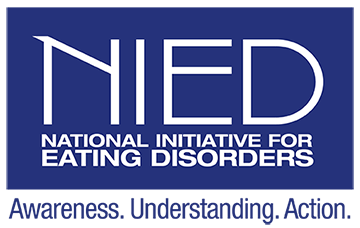“Lead by example” – How to support someone with an Eating Disorder
It is not easy to support someone with an Eating Disorder.
Kirk Mason was the partner of Michelle Stewart, the former head of communications for the B.C. Ministry of Health, who suffered from a devastating Eating Disorder for 32 years before it eventually claimed her life in 2014.
Mason met Stewart when she was in her mid 30s and had already been living with an Eating Disorder for 17 years. It wasn’t until they had been living together for four months that Michelle sat him down one day and told him about her history. “She said I completely understand if you don’t want to be with me, if you want to walk away from this,” Mason remembers.
But Mason didn’t want to walk away. He started educating himself about Eating Disorders and how to support Stewart as best he could. He even started going to a support group in Victoria for caregivers of people with Eating Disorders. He says it was shocking for many people in the group, who were parents of teens with Eating Disorders, to hear the story about a grown woman who was still struggling with her Eating Disorder after so many years.
Mason supported Stewart through many emergency room visits and a short stay in an inpatient treatment program but nothing seemed to be able to shake the illness that was deeply ingrained in her life. Mason says Stewart was very good at making it seem like everything was going well. “Everyone thought she was quite normal,” Mason remembers. He says her position at the Ministry of Health was sometimes difficult for her because she had to address files of people with Eating Disorders while keeping her own secret alive. “Cases of people with anorexia and bulimia would be put right on her desk,” Mason says. “There were some really tough times for her.”
Mason says he sometimes wishes he had been more upfront with Stewart about her Eating Disorder. He says he always avoided her triggers and they never got into arguments about her illness. “I became complacent,” he says. “I wish I had been more communicative with her, more involved.”
That being said Mason stayed by her side, a constant support through her diagnosis with end stage renal disease and eventual death. He says it was important to him to remain committed to Stewart and show her kindness, compassion and understanding both in her illness and end of life. “It’s something I never thought I would experience but I am glad I did because it opened my eyes,” Mason says.
Stewart’s older sister Karen Flello also played a key role in supporting her throughout her long battle with her Eating Disorder. Flello remembers Stewart first exhibiting signs of an Eating Disorder at 16 in the 1980s when very few healthcare professionals knew how to treat the illness. “We were given a lot of bad advice,” she remembers. “It completely ignored the root causes and biological connections.”
There is not doubt that supporting her sister through over three decades of an Eating Disorder was hard for Flello. All she ever wanted was for her to see how smart, loved and worthy she was. Flello said she had to realize that she was not to blame for not being able to heal her sister’s Eating Disorder. All she could do was focus her energy on being there for her when her illness would let her accept help. “It’s no different than if the person has a physical illness that you can’t cure,” she says.
Flello says if she could give any advice to people supporting a loved one through an Eating Disorder it would be to educate yourself, talk as openly about it as possible and encourage them to seek treatment early. She also says it is extremely important to set boundaries and make sure you are creating your own practice of mindful self compassion. “Whenever things got bad I went to counselling,” she says. “I needed to know how to cope.”
Mason agrees that educating yourself as a caregiver is key to being able to adequately support someone with an Eating Disorder. The desire to be thin is just scratching the surface when it comes to these complex illnesses. Mason says every part of Stewart knew that what she was doing was dangerous and that it would most likely eventually claim her life. “For her it was all about control,” he says.
Mason also encourages caregivers to seek support for themselves. Whether that be through a support group, individual counselling or family and friends. This is something that Stewart herself talked about in her blog, where she documented the end of her life. “Remember and acknowledge your own need for a helping hand and don’t be afraid to reach out,” she wrote in a post on December 5, 2013. “You will lead by the example of your own willingness to acknowledge there is no prize for suffering alone.”
